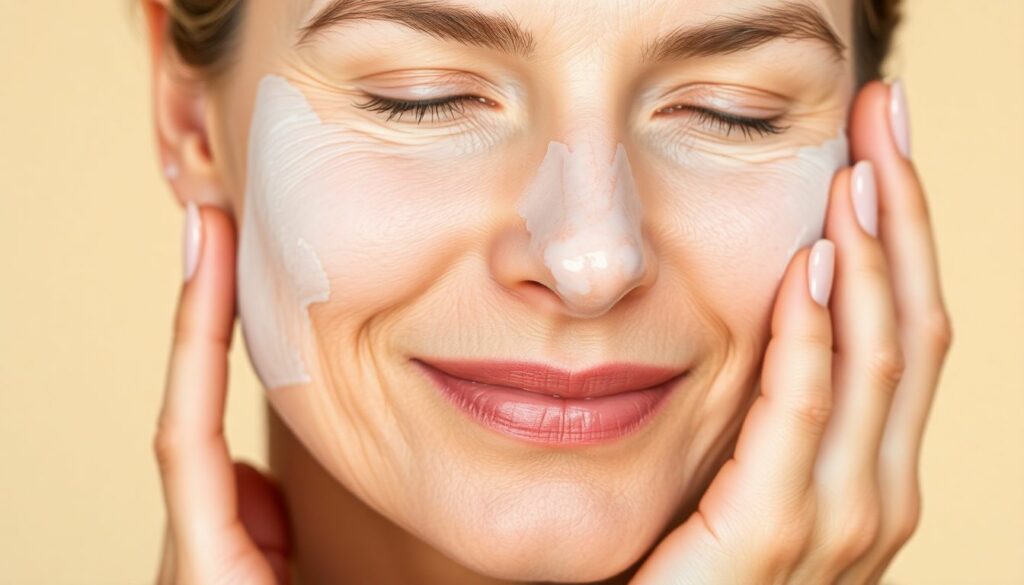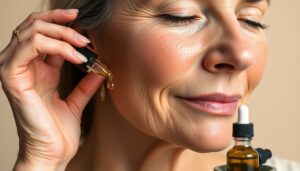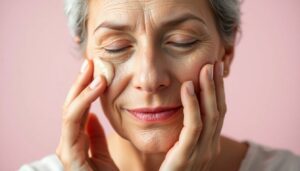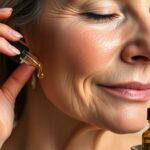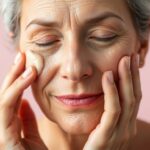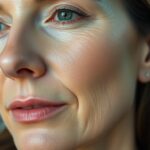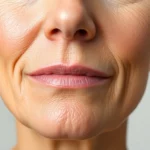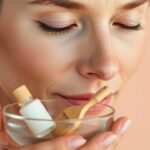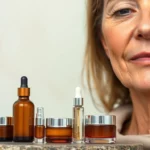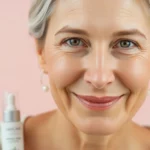Time marches on, and so does your skin. Wrinkles, fine lines, less bounce — it happens. Want to slow it down? A basic do-it-yourself facial mask at home could be the solution.
Much Powerful Facial Masks For Aging Skin. They moisturize, increase collagen and soften wrinkles. Ready to learn more?
There are so many kinds: sheet, clay, cream, etc. Each one works its own magic. Read on to help you find the best mask for you!
Insight into Elderly Skin and Its Requirements
It’s important to understand why some ingredients and masks really work.
The Science of Skin Aging
What’s happening below the surface? As skin normally ages, production of collagen and elastin slows. Cell turnover, too, slows down. Then the environment does damage with free radicals.
Free radicals are molecules that are unstable. This is damaging to skin cells and leads to accelerated aging.
Understanding these changes allows you to care for your skin more effectively. Listen to what your skin is telling you as the years go by.
Key Ingredients to Look For
Seek out potent ingredients such as retinol, peptides, and hyaluronic acid. Antioxidants, like vitamins C and E, are also good. Don’t forget niacinamide!
Retinol; a vitamin A derivative, it helps stimulate collagen and reduce wrinkles. Retinol markedly improved skin texture in a study.
Best Facial Mask Types for Aging Skin
Now, let us discuss the types of masks that will work wonders for aging skin.
Hydrating Masks
Drink up — hydration is crucial for youthful skin. Plump skin looks better. Great ingredients include hyaluronic acid, glycerin and ceramides.
Hyaluronic acid draws in moisture. Glycerin is a humectant, which means it helps to lock in moisture. Ceramides repair the skin barrier.
Hydrating: two to three times a week. That’s especially good news if your skin is dry, maturing skin.
Exfoliating Masks
Exfoliating breaks the bond between dead skin cells. This shows skin that’s brighter and smoother. AHAs (glycolic, lactic acid) and BHAs (salicylic acid) are milder alternatives.
AHAs work more on the surface for exfoliation. BHAs go inside the pores to cleanse them more deeply.
Do not exfoliate too much. This can harm your skin.
Anti-Oxidant Rich Masks
They battle free radicals with antioxidants. They defend the skin from injury. Which antioxidants are the most effective? Good choices include vitamin C, vitamin E and green tea extract.
Vitamin C brightens skin. Vitamin E moisturizes. Green tea extract soothes irritation.
In one study, a vitamin C mask decreased sun damage. Results can vary.
The Right Facial Mask for Your Skin Types and Concerns
Selecting the proper mask does hinge on your skin.
How to Determine Your Skin Type and Problem Areas
First, understand your skin type: dry, oily, combination or sensitive. What are your main concerns? Wrinkles? Dark spots? Loss of firmness?
Once you know your skin type, choose a mask for your specific needs.
If in doubt, see a dermatologist. They can offer tailored guidance.
To Make Sense of the Labels and The Ingredients
Look for a product label. Read product labels carefully. Skip parabens, sulfates, and synthetic fragrances. These can irritate skin.
Test new mask on small area first. This is called a patch test.
Facial Masks for Aging Skin — Do It Yourself
Homemade masks can be cheaper. You also control what goes into it. Excellent for sensitive skin
Hydrating DIY Mask
Avocado, honey, and yogurt mix. Apply to your face. Leave it on for 15 minutes.
Avocado has healthy fats. Honey is a natural humectant. Yogurt contains lactic acid, an exfoliant that is gentle.
Exfoliating DIY Mask
Combine oatmeal, lemon juice, and brown sugar. Gently rub on your face. Rinse after 10 minutes.
Oatmeal soothes skin. Lemon juice brightens (be careful!). Brown sugar serves as a mild abrasive.
Apply and remove using gentle motions. Don’t scrub too hard.
Get the Most Out of Your Facial Mask
Get the most from each mask.
Preparing Your Skin
Cleanse and exfoliate first. A warm towel opens pores. It also enables the mask to better penetrate.
Post-Mask Skincare Routine
After the mask, apply a serum. Next comes moisturizer and sunscreen. A hydrating toner helps too.
Never skip sunscreen during the day!
Conclusion
I use facial masks that really help aging skin. They also hydrate, exfoliate, and supply antioxidants. Choose the right type for your skin type.
Retinol, hyaluronic acid, and vitamin C, etc, and use masks regularly for the younger and radiant skin. Consistency is key!
